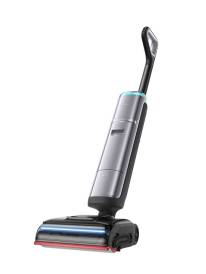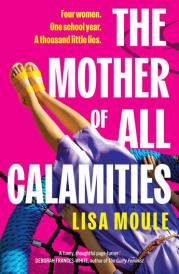Florence Online Shopping Caution Interview

Australians Choose Convenience Over Cyber Safety
Over the last year, almost one in three Australians (30 per cent) experienced cyber crime and 55 per cent of the population say it is at least somewhat likely they will experience cyber crime in the next year. These are some of the key findings from the 2018 Norton LifeLock Cyber Safety Insights Report, an online survey conducted in Australia by The Harris Poll in October 2018 among 1,002 adults 18+ and released today from Norton™ LifeLock™, a Symantec (NASDAQ: SYMC) company. As a result of cyber crime in the past year, the average Aussie lost an estimated AU$240 and spent almost 7 hours (6.6 hours) trying to resolve the resulting issues, such as replacing devices or recovering lost files or money; with almost one in three (31 per cent) needing a week or longer dealing with the problem. The Norton LifeLock Cyber Safety Insights Report also estimates Australians lost 37 million hours and $1.3 billion as an impact of cyber crime in the past year.
The most common cyber crimes ever experienced by Australians include:
26 per cent of people have detected malicious software on a computer, Wi-Fi network smartphone, tablet, smart home or other connected device.
14 per cent detected unauthorised access on an online banking of other financial account.
12 per cent detected unauthorised access on an email account.
In today's connected world, businesses are prime targets for cyber attacks and unintentional missteps can result in critical exposure of consumers' sensitive personal information. Nearly three in four (73 per cent) Australians are more alarmed than ever about their privacy. As a nation, Australia does not have an overwhelming sense of trust in providers to manage and protect personal data with a mere one in five respondents trusting government (20 per cent) and financial services (20 per cent) a lot, and we have the least amount of trust in social media providers at only four per cent. In fact, one in five (17 per cent) respondents have gone so far as to delete a social media account due to privacy concerns in the past 12 months.
Conversely, Australians want control of their privacy, but without hassle or cost. Eighty-nine per cent of respondents claim they want to do more to protect their privacy, yet the majority will accept certain risks to their online privacy to make life more convenient (68 per cent). Perhaps in the pursuit of convenience, respondents also claim they are willing to freely give or sell companies personal information such as identification information (15% would give for free, 19% would sell), internet search history (16% would give for free, 30% would sell) and location (19% would give for free, 32% would sell).
In the age of information sharing, control is now at the heart of society's privacy paradox – from which organisations should have it, to what consequences organisations should face when it is mishandled. Ninety-eight per cent of respondents claim it is an important requirement for organisations to give customers the ability to control how their personal data is used. Furthermore, 61 per cent of respondents say it is absolutely essential for organisations to give consumers a way to report misuse of their personal data. Yet for many Australians, personal accountability for their own personal data is deterred by the pulling of a purse string, with the majority not willing to pay organisations to secure their personal data. In fact, less than one fifth of respondents (19 per cent) are willing to pay a social media provider to ensure protection of personal information, ranking lower than retailers and online shopping sites (24 per cent), healthcare providers and institutions (27 per cent) and financial institutions (27 per cent).
Below are best practices Australians can follow to help protect against online threats:
Safeguard yourself: To help protect your devices and information from the latest online threats, use a robust multi-platform security solution, such as Norton Security Premium, and update it regularly.
Never open suspicious-looking emails: Cyber criminals send fake emails or texts that may look legitimate. The links in these emails or texts contain malicious software that can download malware and spyware. The software may be able to mine your computer for personal information, which is then sent to a remote computer where the attacker could sell the information on the dark web or use the information to commit identity theft.
Make use of a VPN on public Wi-Fi: Many public Wi-Fi connections are unencrypted. This could give cyber criminals a chance to snoop on data being sent and received by your device. If there are software vulnerabilities on your device, attackers can inject malware to help them gain access to your data. In some cases, attackers create fake Wi-Fi hotspots purporting to be legitimate networks.
Own your online presence: Carefully read the terms and conditions before opening an account or downloading an application, including social media accounts. Be sure to set the privacy and security settings on web services and devices to your comfort level for information sharing.
Get two steps ahead and manage your passwords: Switch on two-step verification or multi-factor authentication wherever offered to prevent unauthorised access to your online accounts. Always change the default passwords to something strong and unique on your devices, services, and Wi-Fi networks.
Educate your child about online safety: Don't just tell them to be careful online, show them how. Spend time with your child online and guide them through how to have a positive relationship with technology.
Be cautious of over-sharing your child's life on social media: You are creating your child's digital identity. Ensure your social media posts present your child in a positive way.
To learn more about the real impact of cyber crime and how consumers can protect their privacy, identity, and digital information, visit here.
The most common cyber crimes ever experienced by Australians include:
26 per cent of people have detected malicious software on a computer, Wi-Fi network smartphone, tablet, smart home or other connected device.
14 per cent detected unauthorised access on an online banking of other financial account.
12 per cent detected unauthorised access on an email account.
In today's connected world, businesses are prime targets for cyber attacks and unintentional missteps can result in critical exposure of consumers' sensitive personal information. Nearly three in four (73 per cent) Australians are more alarmed than ever about their privacy. As a nation, Australia does not have an overwhelming sense of trust in providers to manage and protect personal data with a mere one in five respondents trusting government (20 per cent) and financial services (20 per cent) a lot, and we have the least amount of trust in social media providers at only four per cent. In fact, one in five (17 per cent) respondents have gone so far as to delete a social media account due to privacy concerns in the past 12 months.
Conversely, Australians want control of their privacy, but without hassle or cost. Eighty-nine per cent of respondents claim they want to do more to protect their privacy, yet the majority will accept certain risks to their online privacy to make life more convenient (68 per cent). Perhaps in the pursuit of convenience, respondents also claim they are willing to freely give or sell companies personal information such as identification information (15% would give for free, 19% would sell), internet search history (16% would give for free, 30% would sell) and location (19% would give for free, 32% would sell).
In the age of information sharing, control is now at the heart of society's privacy paradox – from which organisations should have it, to what consequences organisations should face when it is mishandled. Ninety-eight per cent of respondents claim it is an important requirement for organisations to give customers the ability to control how their personal data is used. Furthermore, 61 per cent of respondents say it is absolutely essential for organisations to give consumers a way to report misuse of their personal data. Yet for many Australians, personal accountability for their own personal data is deterred by the pulling of a purse string, with the majority not willing to pay organisations to secure their personal data. In fact, less than one fifth of respondents (19 per cent) are willing to pay a social media provider to ensure protection of personal information, ranking lower than retailers and online shopping sites (24 per cent), healthcare providers and institutions (27 per cent) and financial institutions (27 per cent).
Below are best practices Australians can follow to help protect against online threats:
Safeguard yourself: To help protect your devices and information from the latest online threats, use a robust multi-platform security solution, such as Norton Security Premium, and update it regularly.
Never open suspicious-looking emails: Cyber criminals send fake emails or texts that may look legitimate. The links in these emails or texts contain malicious software that can download malware and spyware. The software may be able to mine your computer for personal information, which is then sent to a remote computer where the attacker could sell the information on the dark web or use the information to commit identity theft.
Make use of a VPN on public Wi-Fi: Many public Wi-Fi connections are unencrypted. This could give cyber criminals a chance to snoop on data being sent and received by your device. If there are software vulnerabilities on your device, attackers can inject malware to help them gain access to your data. In some cases, attackers create fake Wi-Fi hotspots purporting to be legitimate networks.
Own your online presence: Carefully read the terms and conditions before opening an account or downloading an application, including social media accounts. Be sure to set the privacy and security settings on web services and devices to your comfort level for information sharing.
Get two steps ahead and manage your passwords: Switch on two-step verification or multi-factor authentication wherever offered to prevent unauthorised access to your online accounts. Always change the default passwords to something strong and unique on your devices, services, and Wi-Fi networks.
Educate your child about online safety: Don't just tell them to be careful online, show them how. Spend time with your child online and guide them through how to have a positive relationship with technology.
Be cautious of over-sharing your child's life on social media: You are creating your child's digital identity. Ensure your social media posts present your child in a positive way.
To learn more about the real impact of cyber crime and how consumers can protect their privacy, identity, and digital information, visit here.
 Interview with Florence
Interview with Florence
Question: Can you tell us about how your bank account was hacked?
Florence: I lost money from my bank account after an online scam that involved me purchasing a product from a dishonest seller. I saw an ad for a new skincare line from Lisa Wilkinson on Facebook that looked good so I went ahead and purchased a little treat for myself. The product arrived okay and everything seemed normal, I had no idea that the business wasn't legitimate. It wasn't until my daughter told me that that Lisa didn't have a skincare line that I thought something could be off. She told me to check my credit card statement and cancel the card that I had used to purchase the product but by the time I went to do that they had withdrawn $500.
Question: How much money was taken?
Florence: The initial charge on my credit card matched the price of the product I had purchased, I think this was to lull me into a sense of security and not suspect anything was wrong. A few days later when I checked my statement, after my daughter told me this could be a scam I realised $500 had been withdrawn in numerous transactions by multiple vendors with similar business names all related to beauty.
Question: When did you learn this face-cream had been the cause for your bank account being hacked?
Florence: I learnt that my credit card had been overcharged when my daughter advised me to check my statement, after suspecting this could be a scam.
Question: What did you learn from this experience?
Florence: I have learnt to be far more cautious and not as trusting towards suspicious looking ads or emails, especially on social media. I've noticed I am starting to take proactive steps to protect myself online.
Question: What do you hope others learn from your experience?
Florence: When it comes to online safety, I hope everyone starts to pay a little more attention to who they are giving details to, and are being more cautious about falling for these "too-good-to-be-true" ads.
Question: Will you continue to make purchases, online?
Florence: I will continue to make online purchases, however I definitely will be paying more attention to what I am buying, who I am buying from and always ensuring I use secure payment methods.
Question: How can we protect ourselves from our own bank accounts being hacked?
Florence: I am not the expert in cyber security, but from my experience I would suggest others just remain cautious about where they're entering credit card and banking details and the validity of online claims.
Interview by Brooke Hunter
Photo by Brooke Cagle on Unsplash
Photo by Charles on Unsplash
Florence: I lost money from my bank account after an online scam that involved me purchasing a product from a dishonest seller. I saw an ad for a new skincare line from Lisa Wilkinson on Facebook that looked good so I went ahead and purchased a little treat for myself. The product arrived okay and everything seemed normal, I had no idea that the business wasn't legitimate. It wasn't until my daughter told me that that Lisa didn't have a skincare line that I thought something could be off. She told me to check my credit card statement and cancel the card that I had used to purchase the product but by the time I went to do that they had withdrawn $500.
Question: How much money was taken?
Florence: The initial charge on my credit card matched the price of the product I had purchased, I think this was to lull me into a sense of security and not suspect anything was wrong. A few days later when I checked my statement, after my daughter told me this could be a scam I realised $500 had been withdrawn in numerous transactions by multiple vendors with similar business names all related to beauty.
Question: When did you learn this face-cream had been the cause for your bank account being hacked?
Florence: I learnt that my credit card had been overcharged when my daughter advised me to check my statement, after suspecting this could be a scam.
Question: What did you learn from this experience?
Florence: I have learnt to be far more cautious and not as trusting towards suspicious looking ads or emails, especially on social media. I've noticed I am starting to take proactive steps to protect myself online.
Question: What do you hope others learn from your experience?
Florence: When it comes to online safety, I hope everyone starts to pay a little more attention to who they are giving details to, and are being more cautious about falling for these "too-good-to-be-true" ads.
Question: Will you continue to make purchases, online?
Florence: I will continue to make online purchases, however I definitely will be paying more attention to what I am buying, who I am buying from and always ensuring I use secure payment methods.
Question: How can we protect ourselves from our own bank accounts being hacked?
Florence: I am not the expert in cyber security, but from my experience I would suggest others just remain cautious about where they're entering credit card and banking details and the validity of online claims.
Interview by Brooke Hunter
Photo by Brooke Cagle on Unsplash
Photo by Charles on Unsplash
MORE



